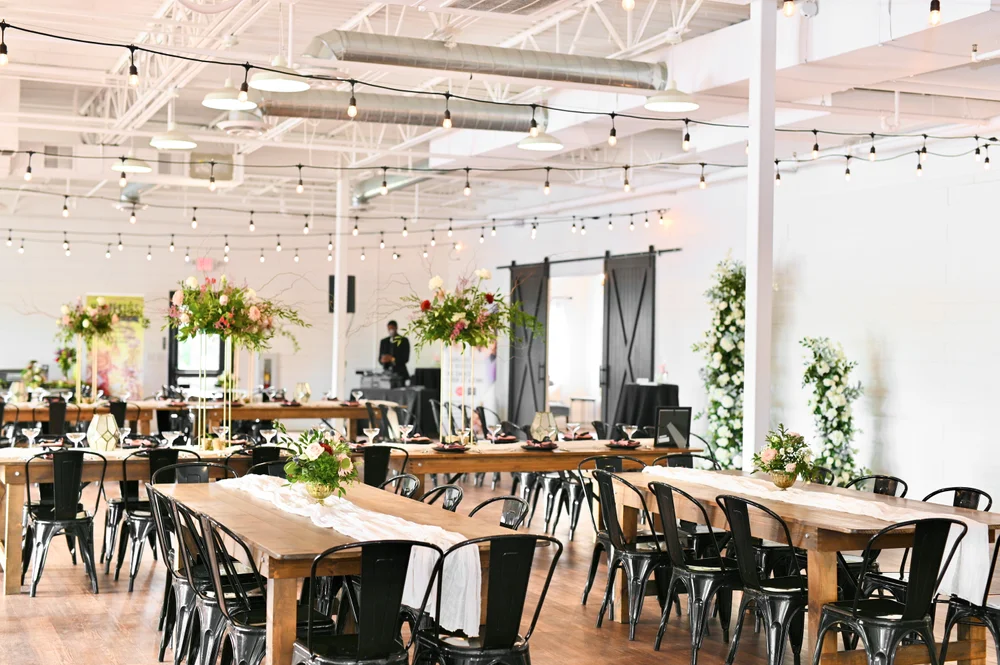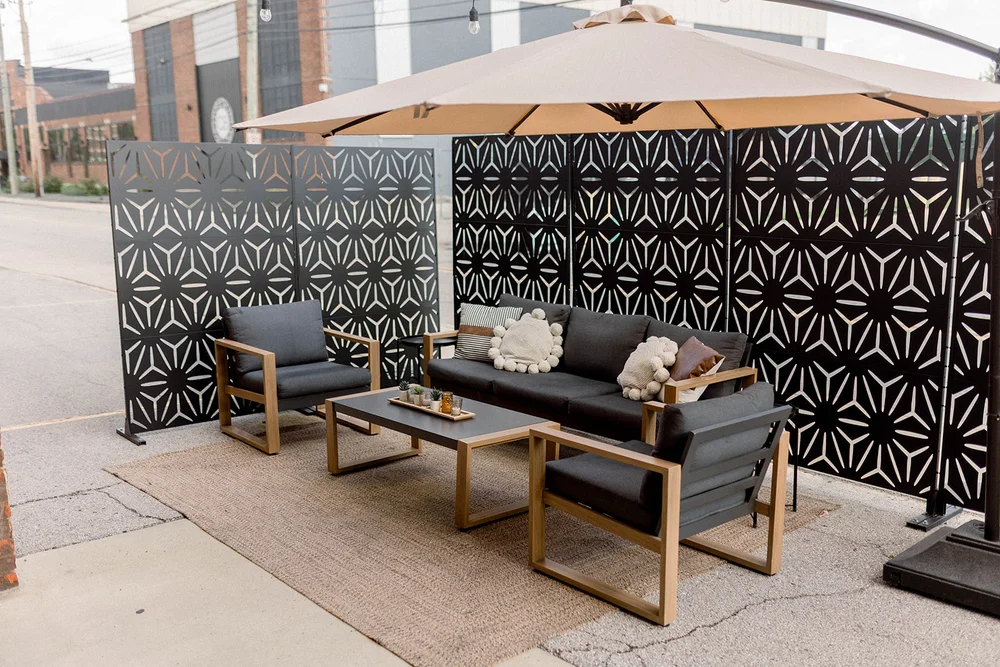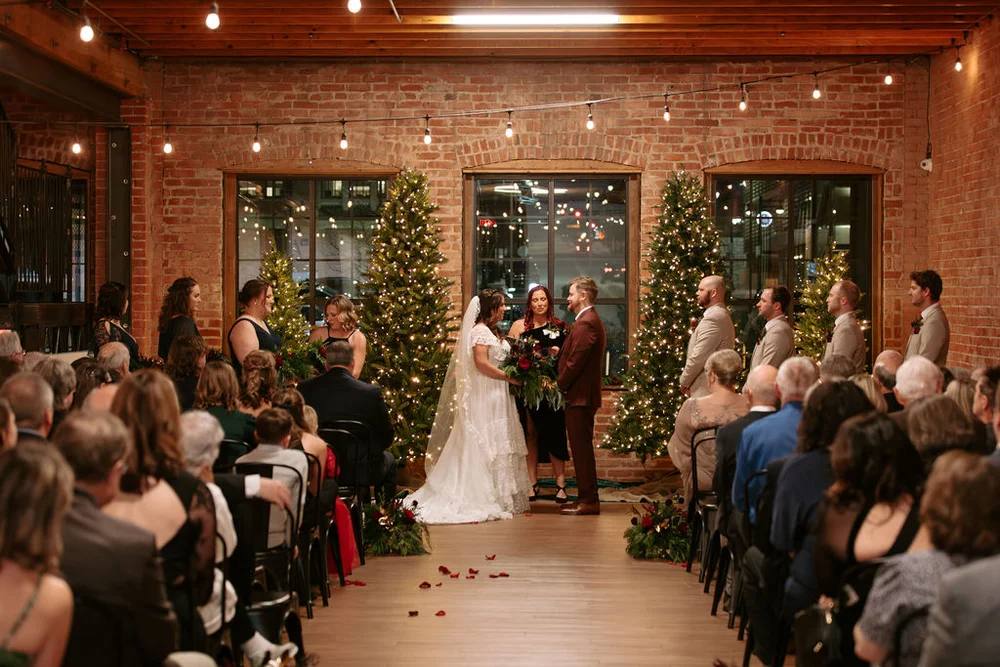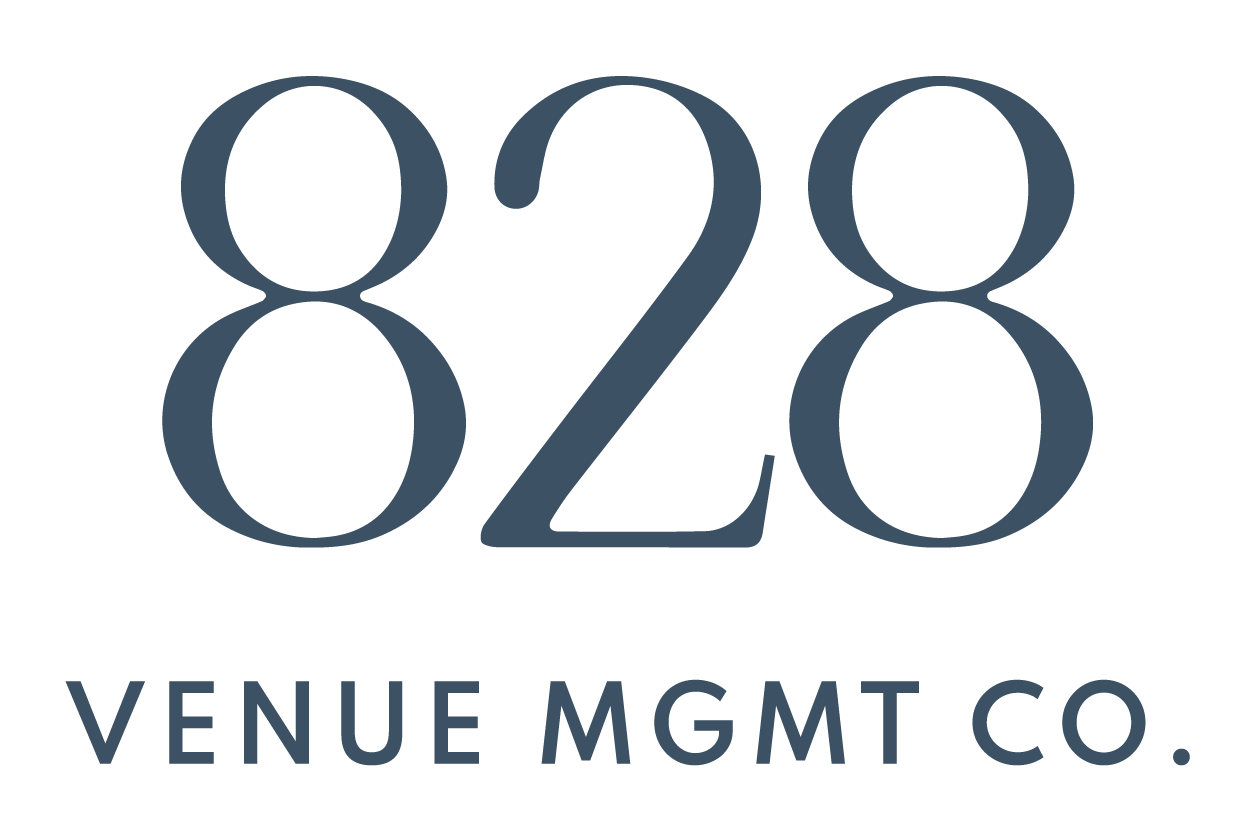Opening a wedding venue can be a dream come true, but before you uncork the champagne and envision your first happy couple walking down the aisle, there’s a critical step that can make or break your business: lease negotiation.
A well-negotiated lease is like a strong foundation for your venue — it provides stability and support. A poorly negotiated one can lead to costly headaches and even business failure. In most cases, a lease is created by the landlord so it includes a lot of terms that are favorable to the landlord and it cannot be renegotiated after it is signed, so spend the time upfront to get it right; do not feel pressured to move too fast.
You only get one shot to get it right!
In this article, you’re going to learn the most common important things to keep an eye out for when negotiating a lease:
- Review every clause
- Who pays for what?
- Renewal options
- Parking and amenities
- The competition
- Exit strategy

The Lease is Your Foundation: Understand Every Clause
It might go without saying, but don’t just skim the lease agreement and sign on the dotted line. This document will dictate the terms of your business for years to come. Grab a large cup of coffee, and read every single clause carefully, make sure you understand the defined terms, and don’t skimp on reviewing all of the exhibits. If you don’t understand something, ask for clarification. Make the investment in having an attorney specializing in commercial real estate review the lease agreement and provide recommendations on areas to adjust. Remember that each state has different laws, so your attorney should be familiar with your state.
Watch out for:
- Vague language: Ambiguity can be exploited later. Insist on clear, precise wording for all terms specific to your business as some leases often start with boilerplate language that sometimes is not adjusted unless called out by the tenant. It can be helpful to review the lease with the lens of “what if” – “what if this or that happened?” and is it clear how the situation would be handled based on the lease terms? And if not, seek clarity during lease negotiations. It is also helpful to consider the response time required by your landlord if there is are any issues at the venue. Time is of the essence when the roof leaking and you have a wedding in two days, so make sure the landlord is obligated to respond in a timely manner (and define what this means specifically!).
- Hidden costs: Are there common area maintenance (CAM) fees? What about property taxes, insurance, or utility responsibilities? Make sure you have a full picture of all financial obligations beyond just the base rent, and understand how these might escalate over the length of your lease term.
- Maintenance and repair responsibilities: Clearly define who is responsible for what. As a wedding venue, wear and tear will be significant, and you don’t want to be on the hook for major repairs you weren’t anticipating. One area to particularly focus on is who is responsible for HVAC repairs and replacements. Learn from our mistake, and make sure your landlords can’t replace something like an HVAC unit at their will and stick you with the bill. If you are going to be responsible for paying the costs for a repair, then you should be in charge of how and when it will be replaced (within reason, as the landlord will want to ensure everything remains working properly and does not fall in disrepair). Other areas that can result in costly repairs to be mindful of in lease language include the roof, structural components of the property such as load bearing columns, the foundation, or demising walls, exterior landscaping or common areas, and parking lots. Pay particular attention to all the terms related to any elevators that you may have access to or that are included in the lease. Everything and anything related to elevates is expensive!
- Rules & regulations: These key aspects or “house rules”, typically in an exhibit or article, most often impact the tenant’s operations. They can cover a range of topics such as local compliance with laws, noise and conduct, parking, deliveries, alternations, and cleanliness. While these rules are intended to ensure safety and protect the interest of both the landlord and their tenants holistically, they can conflict with how you typically run your business, or envision running your business. For example, a rule may encompass designated quiet times during certain times or days. For an events-based business, this is could be too vague as written and require negotiation to open up restricted windows, how and when to provide notice to the landlord or other tenants, or even establishing an agreed upon decibel level so noise is clearly defined. You may want to consider incorporating a rule into a separate term in the lease altogether depending on the implications to your business. An example of this would be removing parking from the rules and regulations and establishing a term that captures availability, a management plan from both parties, and specific restrictions in detail.

Build-Out and Improvements: Who Pays for What?
Transforming a raw space into a beautiful wedding and event venue will likely involve significant renovations. Who bears the costs to build out the space is a crucial negotiation point and one where you will want to dive deep into.
Watch out for:
- Insufficient tenant improvement (TI) allowance: This is money the landlord provides to help you build out the space. While it goes without saying, you will want to negotiate the highest possible TI allowance, but more important to this is understanding how much investment it will take to build out the space to meet your needs. At first blush, if a landlord is offering $500K in TI, this might feel like a win, but when you dive into construction, you learn that you need two-times this amount. Take the time upfront during lease negotiations to engage a General Contractor, ideally specializing in interior upfit work, to get an estimate on the cost to build out the space. Note that you will need to provide guidance on what rooms you will need, the quality of finishes and more to get a good estimate.
- Clear timelines for construction: Ensure the lease specifies a clear timeline for the landlord to deliver the space and for your build-out to be completed (if they are going to be completing the work). Delays can be incredibly costly, and you will want to start booking events for when the venue is complete and you don’t want to have push out someone’s wedding because construction is not yet complete. We like to give a couple of month buffer to any construction timeline before we schedule to host our first event in case construction is delayed. Pro tip: it is helpful to include commonly understood construction deliverables/documents, such as Certificate of Occupancy, as the triggers for building delivery, the start of rent payments, etc. This makes key terms of the lease concrete – and it provides clear evidence that you can legally move to the next phase of build-out or operation and the work is deemed acceptable by ‘authorities having jurisdiction’ (AHJs) – and not just the landlord.
- Timing of TI distributions: If the landlord is going to disburse you the TI funds, and you are going to manage the build out independently, pay close attention to how and when the TI funds will be distributed. You do not want to find yourself in a situation where you do not have the cash to pay the GC while you wait for your TI disbursement. Additionally TI “draws” on an allowance are much more complicated than an ATM transaction. Make sure to understand what the landlord requires to see with a draw submission “package” so you allot the time to gather those critical elements.
- Ownership of improvements: What happens to your fixtures and improvements at the end of the lease term? Clearly define what you can remove and what becomes the landlord’s property. If you install a family heirloom in one of the client rooms, you will want to be able to take that with you at the end of the lease term, but may not want to be forced to remove the flooring you installed at beginning of your lease!
Lease Term and Renewal Options: Planning for the Future
The length of your lease and your options for renewal are vital for long-term business stability.
Watch out for:
- Too short a term: A short lease might seem appealing for flexibility, but it leaves you vulnerable to significant rent increases or even non-renewal just as your business is gaining traction. Aim for a term that allows you to recoup your investment and establish your brand.
- Unfavorable renewal options: Don’t assume renewals will be at the same favorable terms. Negotiate clear renewal options with predetermined rent increases (e.g., based on CPI or a fixed percentage) or a clear process for rent determination.
- Kick-out clauses: Can the landlord terminate your lease early for their own development plans? If so, ensure there are substantial penalties or compensation for you.

Access, Parking, and Amenities: The Guest Experience Matters
A wedding venue needs more than just a beautiful room. Think about the entire guest experience.
Watch out for:
- Inadequate parking: This is a huge one for wedding venues. Ensure there’s ample, easily accessible parking for guests and vendors.
- Accessibility: Is the venue ADA compliant? Are there ramps, elevators, and accessible restrooms for all guests? If not, make sure that the lease requires the landlord to deliver the property ADA compliant.
- Access for vendors: Can caterers, florists, and other vendors easily load in and out? Are there designated service entrances (and wide enough!), parking areas, and/or elevators?
- Noise restrictions: Understand any potential noise ordinances or restrictions that could impact your ability to host lively events. Make sure you think beyond “I Do” – you will want to make sure you can host events during business hours without restrictions.
- Signage: Don’t forget to check the lease terms for your options to include signage on the building, doors, or directories so that your clients and guests can find your venue.
Exclusivity and Competition: Protect Your Niche
Imagine investing heavily in your dream wedding venue, only for the landlord to lease the space next door to a competing venue. This is a real risk if you don’t address it in your lease.
Watch out for:
- Lack of exclusivity clauses: Negotiate for an exclusivity clause that prevents the landlord from leasing other spaces in the same property (or even within a defined radius) to direct competitors. Landlords tend to not like these types of clauses so you will likely need to have some flexibility in the defined radius that you are pushing for, perhaps 1-2 miles.
- Radius clauses in reverse: Sometimes landlords will try to restrict your ability to open other venues within a certain distance. Be wary of these, especially if you have future expansion plans.

Exit Strategy: Planning for the Unforeseen
While you’re envisioning success, it’s prudent to consider potential exit strategies.
Watch out for:
- Subletting and assignment clauses: What are your options if you need to sell your business or relocate? Can you easily sublet or assign the lease to a new tenant? Landlords often have strict control over this, so negotiate for reasonable terms.
- Personal guarantees: Many landlords require personal guarantees from business owners. Understand the extent of your personal liability and explore ways to limit it. This is a key area to engage legal expertise to help protect you and your family!
The Golden Rule: Seek Professional Counsel
Lease negotiation is complex, and the stakes are incredibly high when opening a venue. It will take much more than your eyes, the eyes of your work colleagues or business partners to review the lease in the detail that is necessary. While the cost for an attorney can seem daunting, they will identify pitfalls you might miss, negotiate on your behalf, and ensure the lease protects your intereststhat. The investment in a commercial real estate attorney will payback in spades.
Thinking about opening a wedding and event venue and have some additional questions about how to negotiate a strong lease? 828 Venue Management Company operates event venues across the nation and are experts in the venue management space. We bring expertise, unparalleled customer service, and a team of professionals dedicated to your venue and its success. Contact us today, we’d love to learn more about the vision for your new venue how we might partner together.


